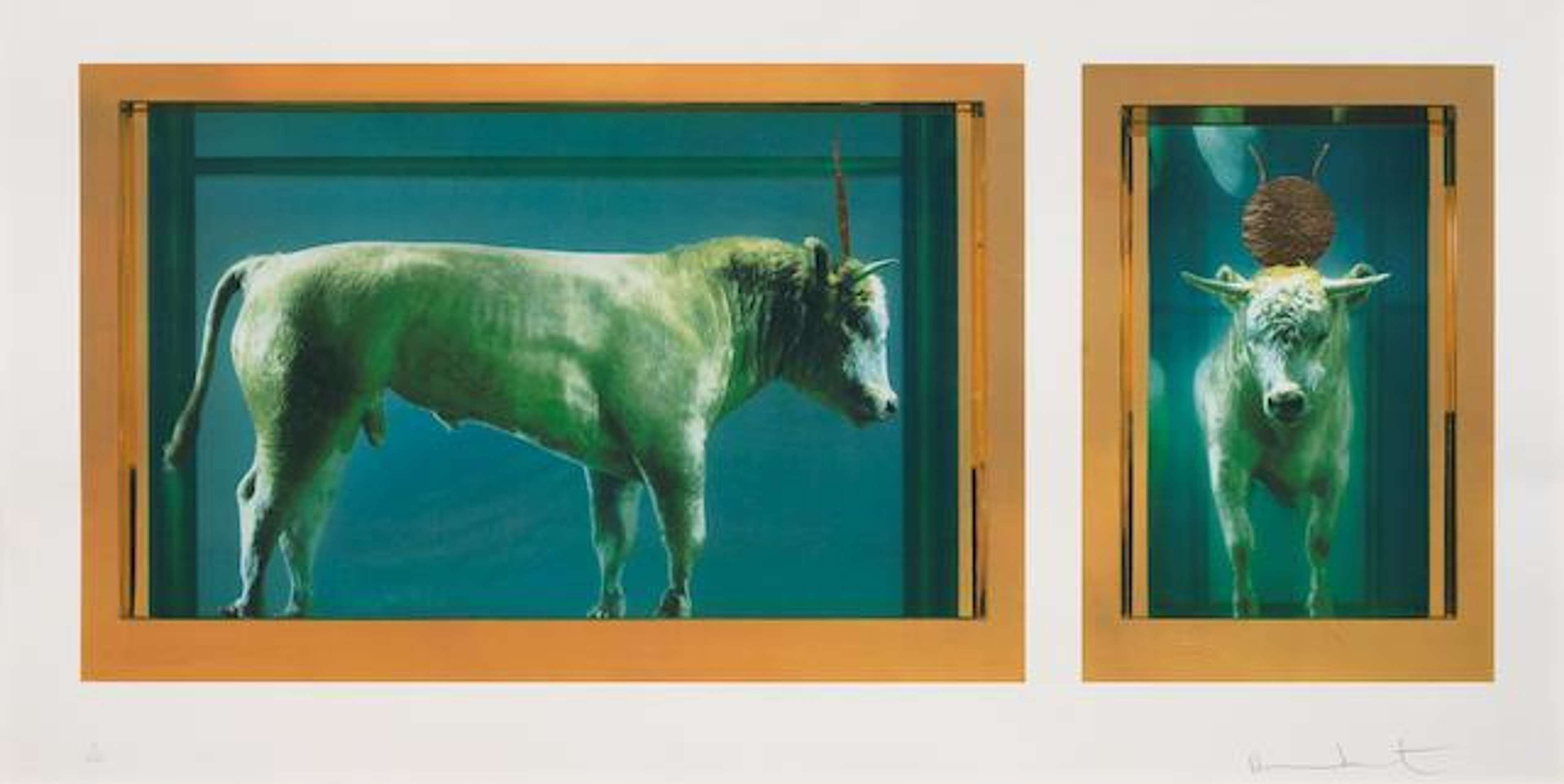The Golden Calf
The Golden Calf
Signed Print
Damien Hirst
£4,400-£6,500
$9,000-$13,000 Value Indicator
$8,000-$12,000 Value Indicator
¥40,000-¥60,000 Value Indicator
€5,000-€7,500 Value Indicator
$45,000-$70,000 Value Indicator
¥910,000-¥1,350,000 Value Indicator
$6,000-$8,500 Value Indicator
There aren't enough data points on this work for a comprehensive result. Please speak to a specialist by making an enquiry.
65 x 124cm, Edition of 100, Screenprint
Auction Results

Track auction value trend
Meaning & Analysis
The Golden Calf is a print of Damien Hirst’s infamous installation of the same name. The print represents the calf frontally and in profile, submerged and enclosed in formaldehyde. It is signed in the bottom right corner and is an edition of 100.
The 18 month-old calf is shown in profile on the left and frontally on the right. The gold disk is framed by the horns which are encased in 18 carat gold. The use of a golden calf for this installation and print was intentional. It relates to the biblical story of the book of exodus wherein the Israelites worshipped the calf as an idol. The work marked a seminally innovative moment in the sale of art. Hirst was to sell these works directly through Sotheby’s.
This print preserves, in a much smaller scale, the famous formaldehyde installation. It is one of several works by Hirst that enclose complete animals in formaldehyde. In 1991 The Physical Impossibility of Death In The Mind Of Someone Living, a full size tiger shark preserved afloat, was Hirst’s first exploration of the use of formaldehyde. He continued to use this approach for several years. The Golden Calf coupled this interest with Hirst’s recurrent exploration of religion and the use of luxury materials. The presence of gold may be compared to Hirst’s use of diamonds in his For The Love of God sculpture.
